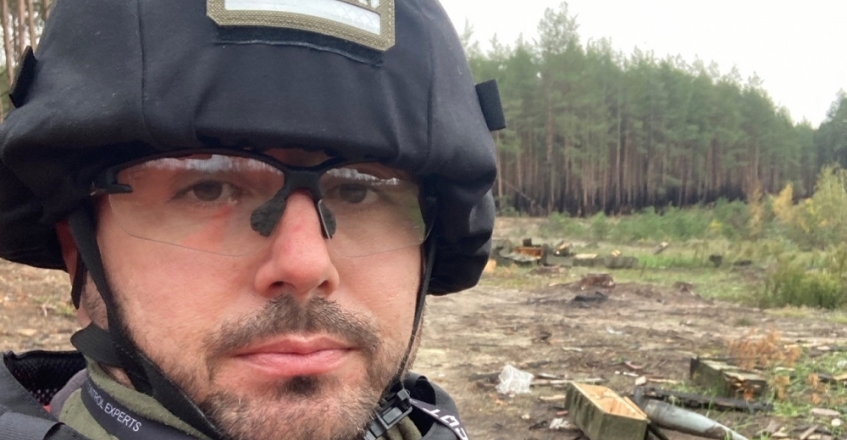News
Dmytro Hreshko: Here Were Situations When the Military Advised Us Not to Wear Press Badges
Taking its name from Divija, the Slavic goddess of nature, this documentary stands apart from all others about the war in Ukraine - the director turns his lens to nature, to the beautiful living world that silently endures the devastation of war and, with quiet defiance, slowly restores itself.
Taking its name from Divija, the Slavic goddess of nature, this documentary stands apart from all others about the war in Ukraine - the director turns his lens to nature, to the beautiful living world that silently endures the devastation of war and, with quiet defiance, slowly restores itself. The film “Divia” was screened in the Competition Programme - Documentary Film of 31st Sarajevo Film Festival.
The ability to step away from the immense human sacrifices and soar above the magical nature with a drone makes you special among the Ukrainian directors who have presented themselves to the Bosnian audience so far. What prompted you to tackle things that are too often forgotten when we talk about wars?
I’m drawn to filming nature because it truly fascinates me. I love traveling, I love natural landscapes, I love animals - and this is something that hurts me deeply. As often happens with documentary filmmakers, we tend to focus on what hurts us most. In my case, it’s the destruction of nature that wounds me. Of course, this doesn’t diminish the suffering of people, because people are also a part of nature.
The way you use sound and combine it with silence is also special. In addition to the sounds of nature, you also use Sam Slater's incredibly appropriate music that breathes with nature. Was it purposefully composed, tell us about it?
Yes, Sam Slater composed the music specifically for the film. It was a very special process because he was writing the music during the editing stage. We took his music into account while editing, and he also responded to the evolving edit while composing. So the score was entirely created in dialogue with the concept of Divia.
The shots taken with the drone are truly beautiful. How much time and patience did it take to get fantastic shots like the one showing the entire forest with its trees swaying in unpredictable waves in the wind?
The entire filming process took about two years, with a total of 77 shooting days. In the end, we recorded over 100 hours of footage.
Did you get into dangerous situations while filming?
While filming or simply being in frontline areas, there is always a risk of injury or death. Many of these territories are mined, and Russian forces constantly attack various targets - including civilians. In fact, there were situations when the military advised us not to wear press badges, because Russian troops were known to deliberately target journalists and attack them first.
While some demolish and destroy, others clear mines, check water quality and feed unfortunate abandoned animals. Who are the silent heroes of your film that help nature recover?
While writing the script, I wanted to show that alongside the destructive force of humans, like the Russian Federation, there are also people who try to protect and restore nature. I wanted to make it clear that humanity as a whole is not the enemy of nature. On the contrary, humans are part of nature. It’s just that some people live by a concept of domination and exploitation, while others try to coexist with nature - finding mutual benefit in order to survive.






